South Africa’s Next Big Leap: TV White Space (TVWS) Connectivity
Connecting South Africa with TV White Space (TVWS) technology
Reliable and affordable internet connectivity is essential for modern societies to thrive, yet large segments of the population in South Africa still lack access to reliable and affordable internet. Like Wi-Fi, TV White Space (TVWS) is poised to become the next pivotal technology providing ubiquitous connectivity, especially for underserved rural and township communities.
While South Africa has over 95% mobile coverage with 2G/3G/4G networks, a staggering 99% of households, in comparison to 14% in urban areas, still do not have access to fixed broadband internet according to the Council for Scientific and Industrial Research (CSIR).
As Prof. Luzango Mfupe, the Council for Scientific and Industrial Research’s (CSIR) principal researcher and TV White Space (TVWS) project lead explains, " We might think we are connected because we have cell phones, but we don’t have internet. A lot of people have mobile phones, but for stable internet, you need fixed internet at home.”
The Council for Scientific and Industrial Research (CSIR) has engaged in extensive research on TV White Space (TVWS) as a potential solution to bridge this connectivity divide. TV White Space (TVWS) refers to the unused radio frequencies that were previously occupied by analogue TV broadcast services. This type of technology is considered a highly cost-effective way to finally provide affordable broadband to underserved areas.
According to the Council for Scientific and Industrial Research’s (CSIR) perspective, Prof. Mfupe states, " We understand that wireless communication is one of the best forms that can allow us to connect affordably. Given this, we hope to see TVWS become the next wave that will connect citizens to the internet economically, as it is available almost everywhere. According to the World Bank developing countries like South Africa can grow their GDP by approximately 2.3%, if they penetrate their communities or countries with at least 10% affordable broadband.”
The Department of Science and Innovation (DSI), together with the Council for Scientific and Industrial Research (CSIR), are now unlocking this next frontier by enabling nationwide deployment of TV White Space (TVWS) technology to bridge the digital divide. With its ability to deliver broadband connectivity in a robust and cost-effective manner, TV White Space (TVWS) presents immense potential for economic and social development across South Africa.
Source

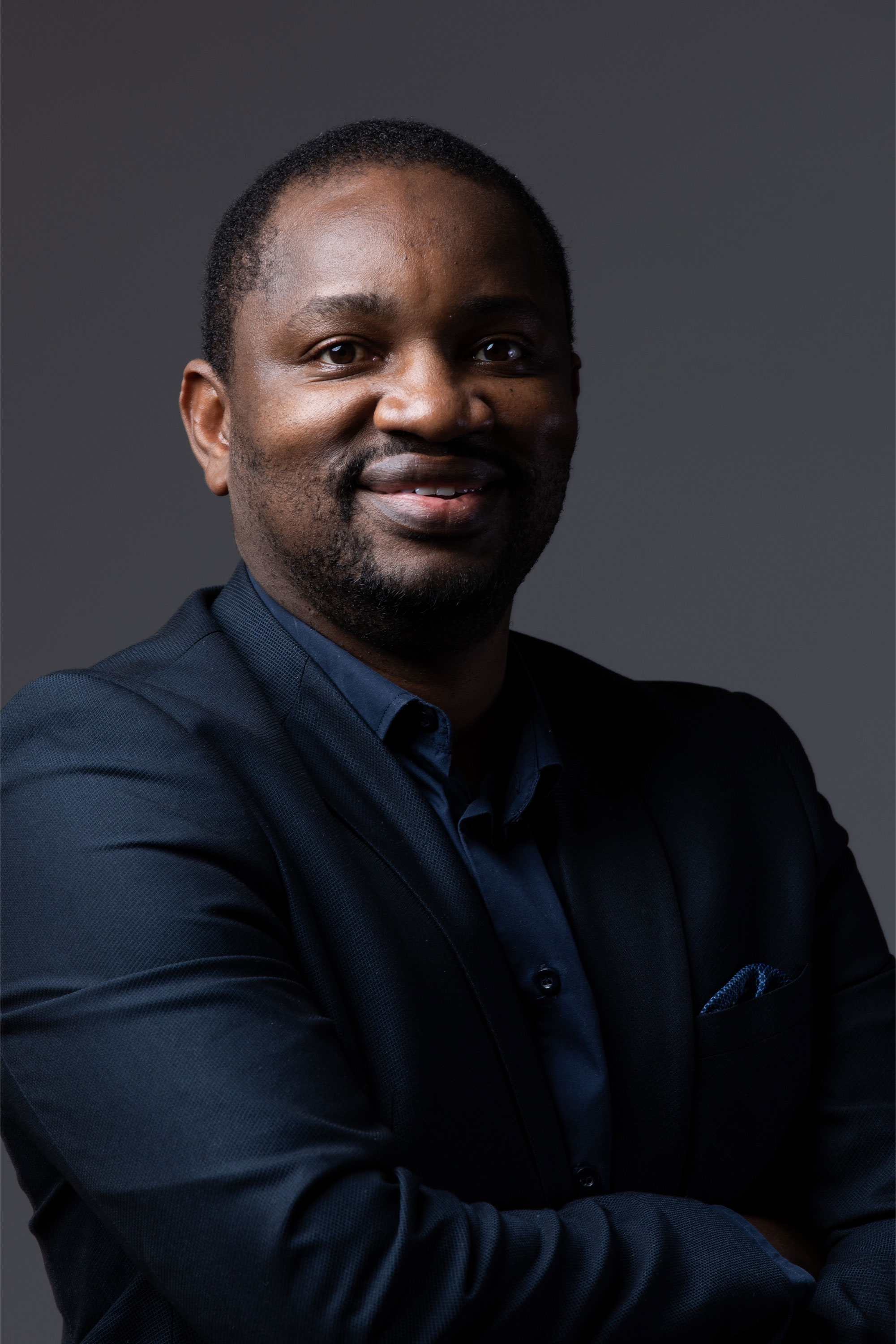
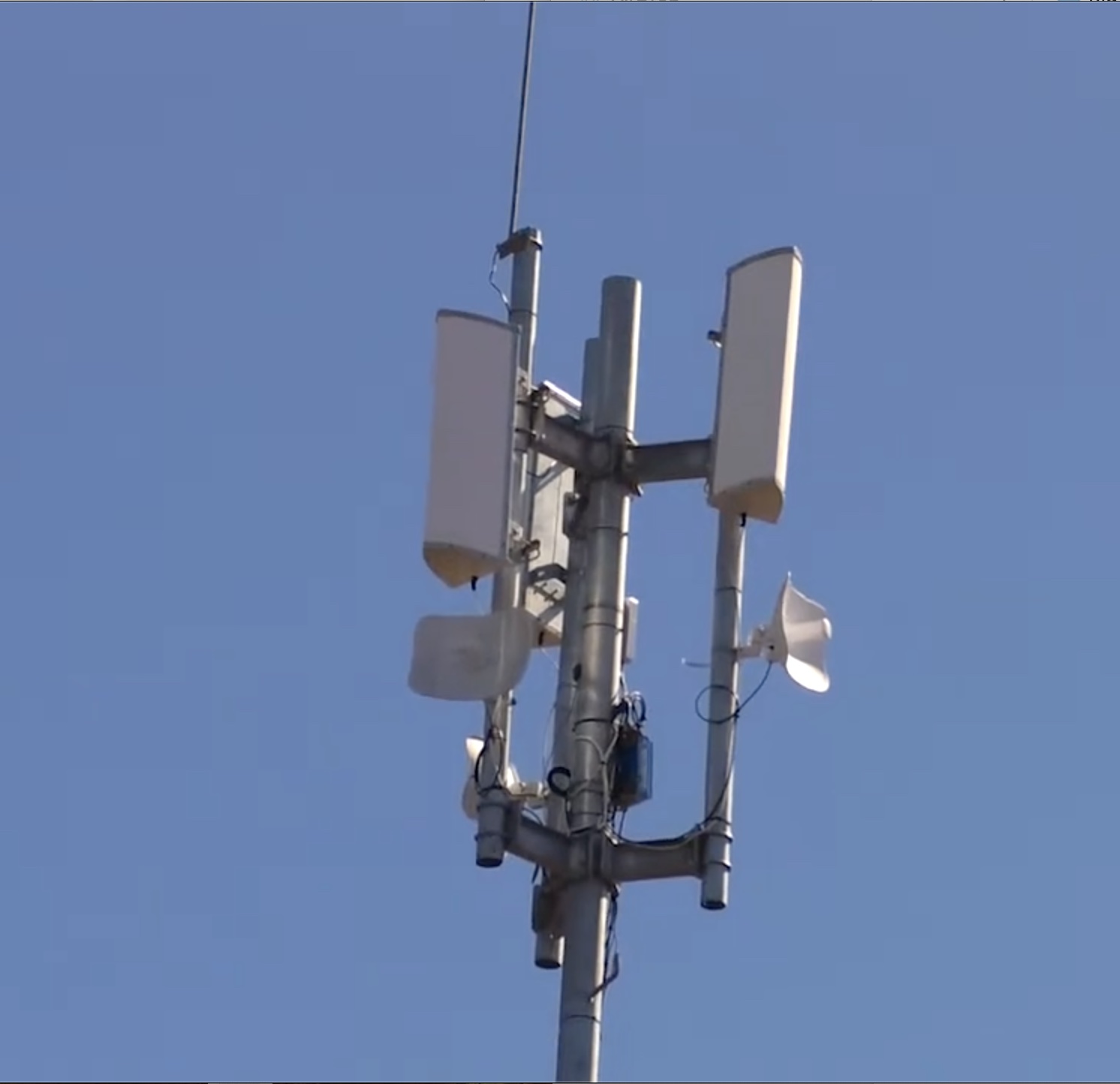
What makes TV White Space (TVWS) unique?
Unlike Wi-Fi which has a limited range, TV White Space (TVWS) operates on Ultra-high Frequency (UHF) signals, just like the old analogue TV channels you could pick up even far away in remote areas with classic antennas. This allows TV White Space (TVWS) to overcome obstacles and travel distances that are out-of-reach for typical Wi-Fi spectrum wireless broadband.
Source
Historically, these Ultra-high Frequency (UHF) channels were intentionally left vacant as buffer zones to prevent interference between adjacent TV broadcast channels. However, innovations in TV White Space (TVWS) technology now enable internet service providers to safely utilise this spectrum to deliver broadband connectivity, without disrupting broadcasting services.
To prevent interference, the TV White Space (TVWS) system relies on a geolocation database to continuously identify the unassigned frequencies between active TV channels in a given area. TV White Space (TVWS) devices then interact with this database to dynamically and opportunistically access only the safe, available channels.
Compared to Wi-Fi solutions operating at higher frequencies, TV White Space (TVWS) broadband networks are significantly less expensive to deploy and more reliable over long distances. This is a matter of physics - at lower frequencies, radio waves can extend much farther up to 10 kilometres, penetrating through rugged terrain without requiring tall towers.
That's why TV White Space (TVWS) is often called "Super Wi-Fi" - it operates similar to license-exempt Wi-Fi technology, but with the favourable physics of low-frequency transmission. This allows TV White Space (TVWS) to affordably blanket entire rural communities and remote areas from a single base station, delivering broadband speeds comparable to other fixed-line internet services.
In summary, TV White Space (TVWS) brings both strong economic and technical advantages. The technology allows for precious new spectrum availability in a very affordable, reliable and interference-free manner by tapping into the favourable physics of the Ultra-high Frequency (UHF) band.
Source
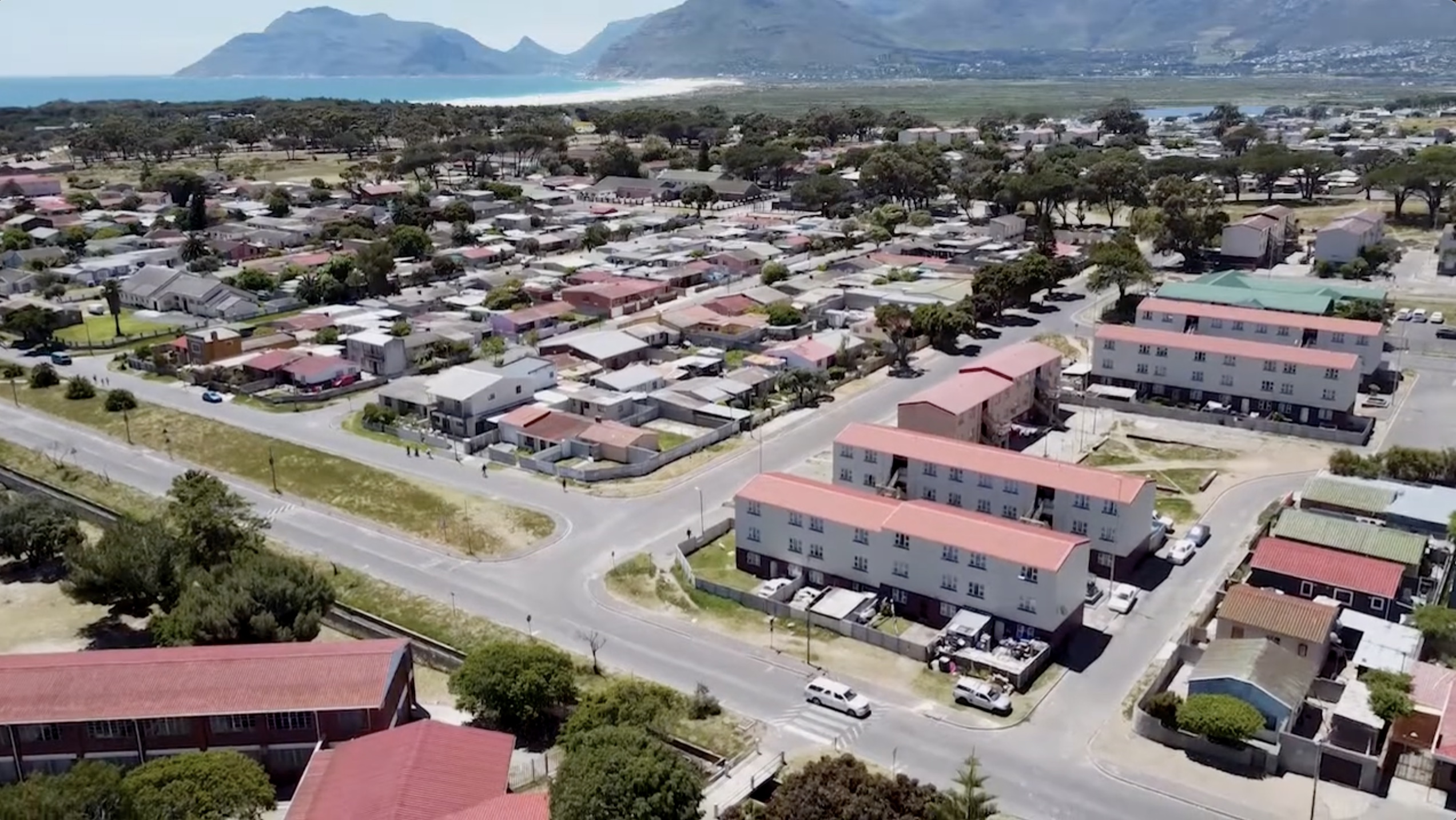
Proving success with TV White Space (TVWS) trials in the Western Cape and Limpopo
Collaboration and partnership are at the core of all great advancements. At the Department of Science and Innovation (DSI), we engage with innovative and ambitious minds to facilitate socio-economic development in our country. We provide leadership, create an enabling environment and allocate resources for science, technology and innovation through various programs and partnerships.
To validate the immense potential of TV White Space (TVWS) technologies, the Council for Scientific and Industrial Research (CSIR) partnered with industry leaders to conduct real-world trials in Cape Town and Limpopo, starting in 2013. In the Cape Town trial, broadband internet services were successfully provided to 10 schools at speeds up to 12 Mbps across an impressive 6.5 km radius, all without any harmful interference issues - even in the more congested metro area. The trial also demonstrated that adequate spectrum was available for TV White Space (TVWS) use, with even more vacant spectrum expected in rural areas.
The resounding success of these trials, proving TV White Space (TVWS) could be operationalised without disrupting existing services, paved the way for the Independent Communications Authority of South Africa (ICASA) to formally enable TV White Space (TVWS) operations through regulations published in March 2018. This followed a multi-year consultation process, including the Independent Communications Authority of South Africa’s (ICASA) Position Paper on Dynamic and Opportunistic Spectrum Management released in April 2017.
The Independent Communications Authority of South Africa’s (ICASA) TV White Space (TVWS) regulations aim to facilitate affordable broadband access for underserved areas while ensuring strict preventions against interference with other licensed spectrum holders. Specifically, the regulations authorise the use of TV White Space (TVWS) technology in the 470-694 MHz frequency bands, except for 606-614 MHz which is allocated for radio astronomy. The framework sets standards for TV White Space (TVWS) device operations and creates mechanisms to protect incumbent users from interference on their assigned frequencies.
Source
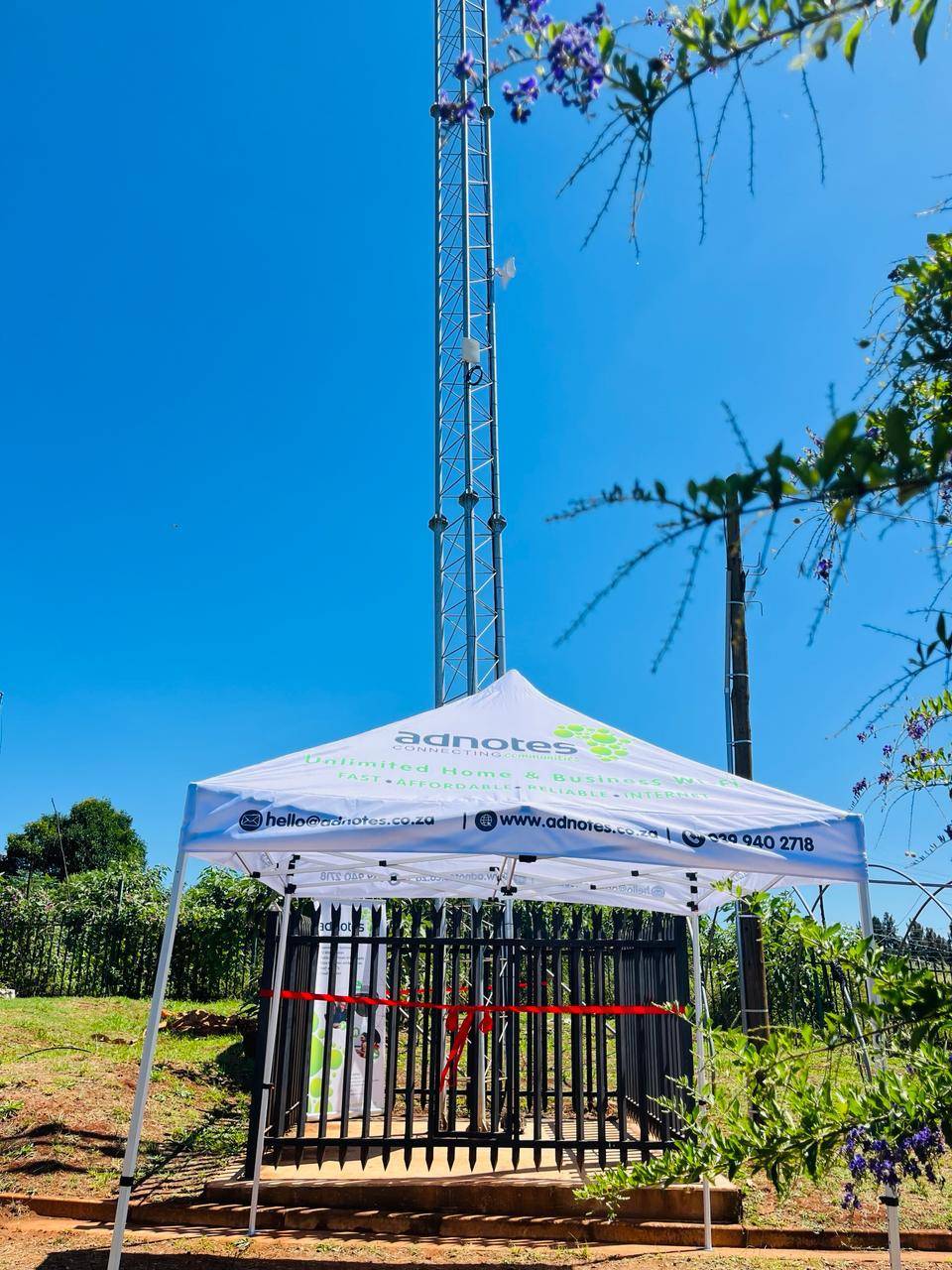
TV White Space (TVWS): opening opportunities for digital entrepreneurs
Prof. Luzango Mfupe is the Council for Scientific and Industrial Research’s (CSIR) principal researcher and TV White Space (TVWS) project lead. He obtained his Bachelor's, Master's and Doctoral degrees in electrical engineering from Tshwane University of Technology. Furthermore, as an innovator and entrepreneur, Prof. Mfupe has demonstrated leadership in local and international cutting-edge technology projects.
According to Prof. Mfupe, TV White Space (TVWS) technology presents immense opportunities for SMMEs and digital entrepreneurs:
"The spectrum is there, the technology allows you to rollout and the equipment comes at a fraction of the cost of an LTE base station, with larger coverage than the LTE deployment. There are a lot of benefits and the barriers of entry for SMMEs have been lowered to a level that a rural operator like AdNotes can also play in that space."
While the major telecom providers can also leverage TV White Space (TVWS) to improve their coverage, the technology empowers entirely new market entrants as well.
Prof. Mfupe emphasised, "Big operators can also use it, so it doesn’t mean MTN or Vodacom cannot use this technology. It allows for coverage in areas that maybe the big telcos could not cover with good speed. This is a growing industry; it’s still in its infancy. It’s a new industry, it’s not like mobile. It’s a hybrid of Wi-Fi and you need to understand where you sit if you’re a digital entrepreneur. You can be at any of the levels: OEM, TVWS network operator or a data centre provider or content provider. So, we’re trying to build an entirely new industry ecosystem and we’d like our SMMEs, especially women and youth, to grab the opportunity."
Recognising the country’s leadership and innovative strides, Prof. Mfupe states, "South Africa has become the first African country to have regulations to develop the technology, which allows operators to use that spectrum. I can say we are ahead…there’s no other country in Africa that can compete with us on this."
Source
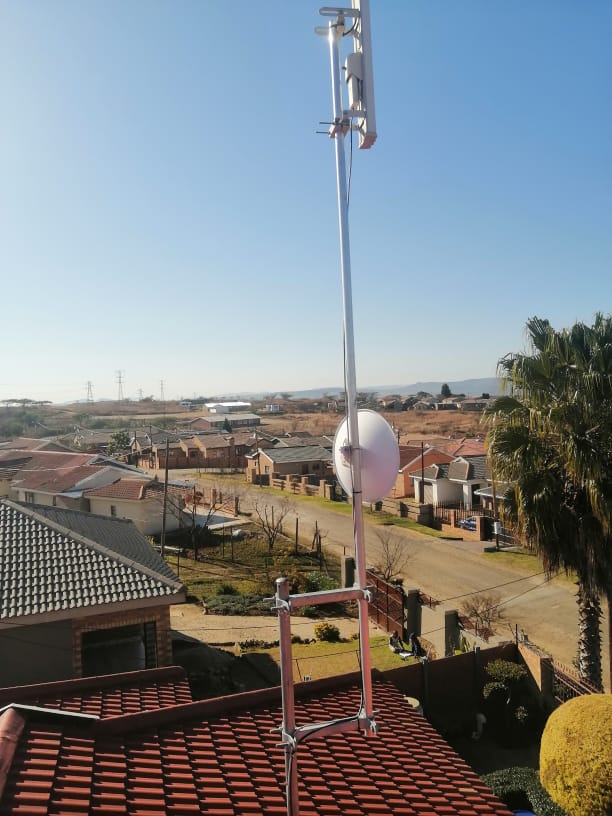
Empowering communities through TV White Space (TVWS) connectivity
Access to reliable broadband internet transforms what is possible for historically underserved communities. While short-range Wi-Fi and urban-centric cellular broadband networks struggled to economically reach these areas, TV White Space’s (TVWS) long-range and non-line-of-sight capabilities finally make deploying affordable broadband viable for rural townships and villages.
This breakthrough connectivity empowers smart communities with access to digital education, e-government services, remote healthcare, precision agriculture and a wealth of other vital socioeconomic applications that were previously out of reach due to lack of broadband infrastructure. TV White Space (TVWS) allows these areas to participate in economic opportunities on a level playing field.
The Department of Science and Innovation (DSI), collaborating with partners like the Independent Communications Authority of South Africa (ICASA) and the Technology Innovation Agency (TIA), has also developed the Spectrum Switch platform to facilitate adoption of TV White Space (TVWS) technologies by companies across multiple sectors. There is already one licensed TV White Space (TVWS) service provider operating in South Africa, with more expected to launch services soon.
Additionally, the Council for Scientific and Industrial Research (CSIR) has joined forces with the United Nations Development Programme (UNDP), British High Commission to South Africa and SEACOM. This multi-stakeholder initiative aims to cultivate TV White Space (TVWS) network operators run by youth and women-owned SMMEs to provide affordable broadband services in rural and township communities nationwide.

Fostering local innovation for the digital economy
The Department of Science and Innovation’s (DSI) strategic focus on enabling technologies like TV White Space (TVWS) stems from our vital role in safeguarding South Africa's future economic competitiveness in an increasingly digital world economy. By strengthening the nation's digital capabilities and internet accessibility, the Department of Science and Innovation (DSI) hopes to help provide a powerful catalyst for accelerated learning, skills development and effective participation in global digital markets.
Through promotion of innovations like TV White Space (TVWS) broadband, the Department of Science and Innovation (DSI) aims to drive economic growth, enhance digital service delivery, and improve the international competitiveness of South African businesses, institutions, and workforce on a broad scale. This visionary investment in cutting-edge digital innovation infrastructure positions the country for long-term prosperity in the modern economy.
Looking ahead, the Department of Science and Innovation (DSI) invites corporations, private sector businesses, entrepreneurs and community leaders to explore the exciting opportunities surrounding TV White Space (TVWS) and complementary digital innovations.
Visit innovation.bridge.info to connect directly with experts like Prof. Luzango Mfupe and learn how to get involved as a TV White Space (TVWS) network operator, equipment provider, digital skills trainer or other capacities.
Department of Science and Innovation
Making sure it’s possible.

